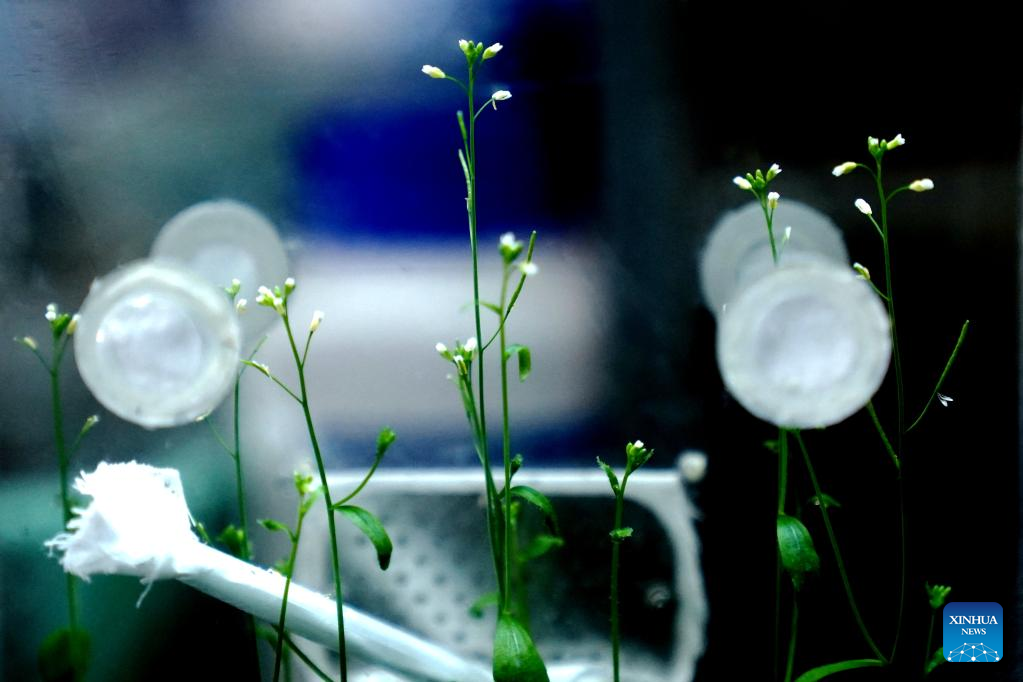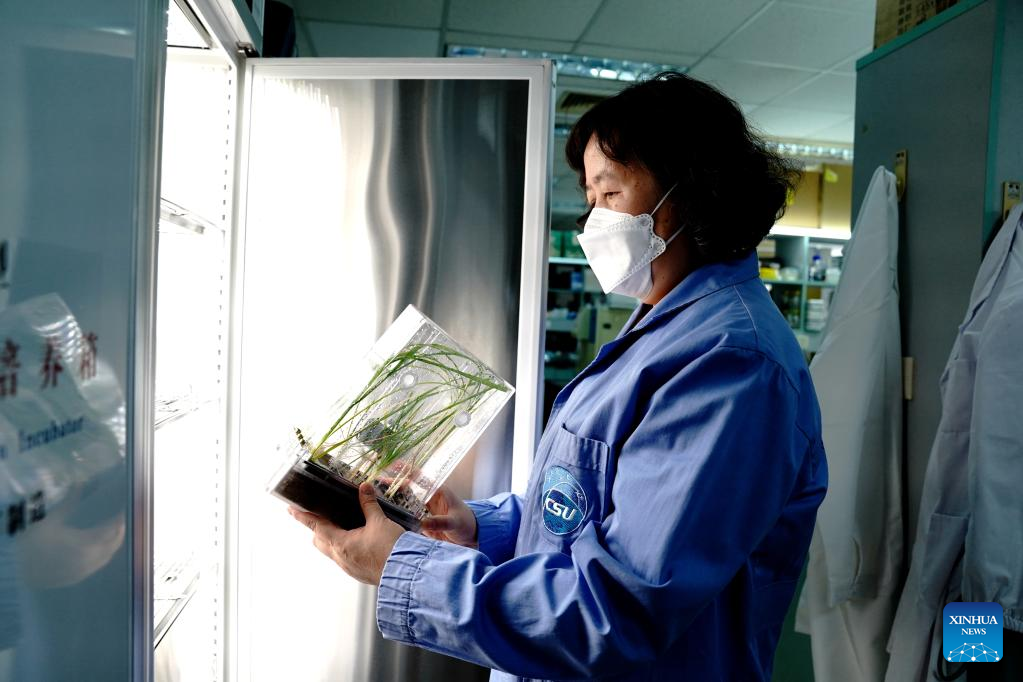31.08.2022

Photo taken on Aug. 29, 2022 shows the experimental unit of same Arabidopsis seedling samples used in China's Wentian lab module at the Center for Excellence in Molecular Plant Sciences under the Chinese Academy of Sciences in Shanghai, east China. (Xinhua/Zhang Jiansong)
The seeds of two plants in China's Wentian lab module have germinated and are now in good condition, according to a briefing on the progress of plant culture experiments in the country's space station on Monday.
Seed samples of the two plants, Arabidopsis and rice, were installed in the life ecology experiment cabinet of the lab module, which went into space in July. The space growth experiments were launched on July 29 with ground instructions.
The Arabidopsis seedlings have grown several leaves, and rice seedlings have grown to a height of about 30 centimeters. Later, their life cycle experiments will be conducted to obtain space seeds, said the briefing.
The country has successfully obtained space seeds of Arabidopsis through its previous life cycle experiment in space, said Zheng Huiqiong, a researcher at the Center for Excellence in Molecular Plant Sciences under the Chinese Academy of Sciences.
Zheng added that the experiment on rice's life cycle in the Wentian lab module would hopefully be successful and provide theoretical guidance for space grain production.
Plant growth in space faces problems such as delayed flowering time, low seed setting rate, and decreased seed quality, and only a few crops like rape, wheat, and peas have completed experiments in space to obtain seeds, said Zheng.

Zheng Huiqiong, a researcher at the Center for Excellence in Molecular Plant Sciences under the Chinese Academy of Sciences, observes the experimental rice unit of the ground control in Shanghai, east China, Aug. 29, 2022. (Xinhua/Zhang Jiansong)
Quelle: Xinhua

